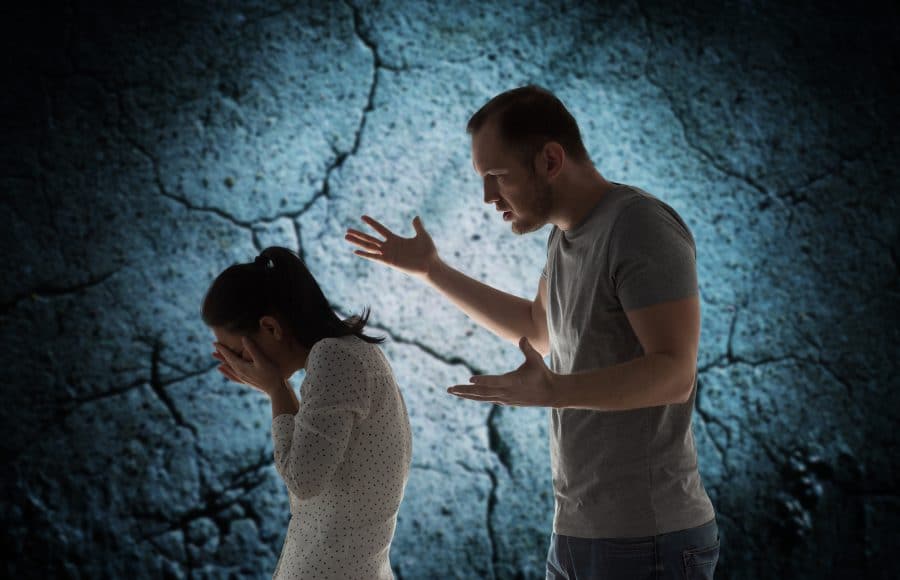Psychological defects are mostly a result of emotional abuse. According to statistics, four out of every five persons go through emotional abuse. Sometimes, they are oblivious about it probably because they don’t know what it means to be emotionally abused. This brings up the bigger question. What is emotional abuse? How do I recognize it to know when to prioritize my mental health?
WHAT IS EMOTIONAL ABUSE
Emotional abuse is not popularly categorized by a particular definition. So its definitions are quite diverse. However, in generic terms, emotional abuse, also known as psychological abuse is a form of abuse that deals with constant and persistent exposure to mental trauma from an abusive relationship or from loved ones. But then what is responsible for emotional abuse in \relationships? Well, a popular factor is a violence.
What I mean is, survivors of domestic violence do not necessarily see or understand that their behavior can be toxic or emotionally abusive to the person at the receiving end. At times, they consider it pure expressions of love. For example, the victimized partner might constantly be stonewalled by this abusive partner. But to them, they are stonewalling because the victimized partner did something wrong. However, nobody truly deserves to be stonewalled. Addressing and speaking about the issue is always the best. In addition, some survivors of narcissistic parenting have the tendency to be emotionally abusive in their relationship. As such, they traumatize people they are around.
WHAT IS EMOTIONAL AND VERBAL ABUSE
Verbal abuse is very much mistaken for emotional abuse. However, they are distinctly different. Emotional abuse is manipulative and doesn’t always have to involve insults (verbal abuse). On the other hand, verbal abuse has to do with insults and hurtful words alone. As such, people who suffer from verbal abuse eventually shut down. In turn, they become inexpressive and introverted.
Plainly said, verbal abuse is a form of emotional abuse. That is, if someone is verbally abused, the person is said to be emotionally abused but it cannot be said the other way round. Well, because someone can be emotionally abused in a lot of ways not just only through verbal abuse. However, coping with this form of abuse is disastrous to our mental health because of its long-lasting effects. What kind of effects have I been coping with though, is the real question.

EFFECTS OF EMOTIONAL ABUSE
The effects of emotional abuse are categorized by exposure. That is, how long you’ve been exposed to this form of abuse. It’s just like a burning book, the longer it stays on fire, the more the pages burn. Personally, I came up with a metric system. Three phases and or effects you’d face if you are in an emotionally abusive relationship. They are;
#1. Phase One – Depression:
At least 90% of millennials have gone through or are currently going through depression but most times they don’t know. Although there might be some markers or symptoms, they are not easily noticed. There are two basic symptoms of depression. They are;
a. Detachment
b. Withdrawal
There are a lot of things that can cause depression but in this context, emotional abuse. Emotional abuse involves manipulation and reverses psychology. So this person preys on you by posing ideas to you making you believe those ideas are yours. It becomes a problem because you eventually shut down. As such, depression creeps in. In addition, this can be highly detrimental because a lot of people go through depression for years. It becomes hard to recover from.
#2. Phase Two- Anxiety:
Anxiety simply means excessive worry and panic. When someone is emotionally abused, he/she constantly feel worried and fear. Basically, fear losing their partner even if it’s a toxic relationship. People tend to do anything just to keep a relationship even if they are being abused. At times, they classify their feeling as love. But you are always more important. Remember that.

#3. Phase Three- PTSD:
Otherwise known as a post-traumatic stress disorder. This is more of an effect than a phase though. However, if you have been constantly ignoring the markers in a toxic relationship or the previous phases, you can suffer PTSD long-term. PTSD as the name implies is simply those lasting effects some people suffer when they’ve undergone stress or survived a drastic trauma. Like a 22- year old guy who’s afraid to swim because he almost drowned as a child. In this context, a 25-year old girl cheating in her current relationship because she has been cheated on.
EXAMPLES OF EMOTIONAL ABUSE
Some examples are;
1. Shaming/blaming
2. Constant opposing.
The victims can no longer recognize their own emotions. This is because they are constantly manipulated. As a result, the victim’s independence is taken away.
TYPES OF EMOTIONAL ABUSE
Emotional abuse can take a number of forms, including:
1. Constant accusations, jealousy, and possessiveness.
2. Narcissism, the constant need for control and dominance, and no consideration for your partner.
3. Criticism
4. Gaslighting
5. Name-calling and verbal abuse
6. Silent treatment, popularly known as stonewalling.
Complications that could occur
Attempts to deal with or lessen emotional abuse can sometimes backfire and worsen the abuse. Some ineffective strategies for dealing with abuse include:
#1. Dispute with the abuser.
Trying to argue with an abuser might exacerbate the situation and lead to violence. It is impossible to fight with an abuser because they will always find new ways to blame, shame, or condemn. They may also attempt to play the victim’s role.
#2. Attempting to explain or justify the abuser.
It may be tempting to try to understand the other person’s behavior or to create justifications for their acts. Finding methods to sympathize with or minimize the actions of an abuser might make leaving the situation much more difficult.
#3. Making an attempt to placate the abuser.
Appeasing the other person may appear to be a sort of de-escalation, but it often backfires in the long term and may permit greater abuse. Instead of attempting to adjust yourself or your behaviors to suit the abuser’s whims, concentrate on creating clear boundaries and avoiding dealing with them as much as possible.
What should I do?
Trust your instincts if you are being abused psychologically and emotionally. Recognize that it’s not right and that you don’t have to live this way.
Call 911 or your local emergency services if you are afraid of immediate physical assault.
Otherwise, your options are limited to the facts of your scenario. What you can do is as follows:
#1. Accept that you are not to blame for the abuse.
Try not to rationalize with your abuser. You may want to assist, but without expert counseling, they are unlikely to break their habit of conduct. That is entirely their duty.
#2. Set personal boundaries and disengage.
Decide not to reply to abuse or get involved in arguments. Maintain your focus. Limit your exposure to the abuser as much as possible.
#3. Exit the relationship or situation.
If at all possible, terminate all ties. Make it clear that it’s the end of the road and don’t look back. You might also want to contact a therapist who can help you how to go forward in a healthy way.
#4. Allow yourself time to recover.
Make contact with supportive friends and family members. If you’re still in school, speak with a teacher or a guidance counselor. Find a therapist who can assist you in your rehabilitation if you believe it will be beneficial.
If you’re married, have children, or have commingled funds, leaving the relationship becomes more complicated. If this is the case, you should seek legal counsel. Here are some further resources:
- Breaking the Cycle: Assisting young people aged 12 to 24 in developing healthy relationships and creating an abuse-free culture.
- DomesticShelters.org: Educational resources, a helpline, and a searchable database of local services.
- Love Is Respect (National Dating Abuse Hotline): Allows kids and young adults to talk with advocates online, by phone, or by text.
HOW TO HEAL FROM EMOTIONAL ABUSE
First of all, you need to understand that even the best of us has at a time gone through this form of abuse. And yes, it’s possible you can heal from this though it might take a while. But how?
1. Prioritizing your mental health is always the first way.
2. Try talking it out with a professional. Therapy always helps and there are a lot of free online therapy and e-books.
If you or a loved one is a victim of domestic violence, call the National Domestic Violence Hotline at 1-800-799-7233 to get confidential help from experienced advocates.
In conclusion, always prioritize your mental health because emotional abuse usually has lasting effects. If you need professional advice, leave a comment down below.
Emotional Abuse FAQ’s
What's an example of emotional abuse?
Making a person afraid that they will not obtain the nourishment or attention they require. Lying. Failure to investigate charges of abuse leveled against them. Making disparaging or malicious remarks about another person to others.
What is the difference between mental and emotional abuse?
Many psychological abuse strategies are also categorized as emotional abuse, and vice versa. The difference between the two is that psychological abuse has a greater impact on a victim’s mental capabilities. While emotional abuse influences how people feel, psychological abuse influences how they think.
What is the cycle of emotional abuse?
The cycle of abuse is a four-stage cycle used to describe how abuse can arise in relationships. If the abuse follows this pattern, the stages—tension, incident, reconciliation, and calm—repeat.



